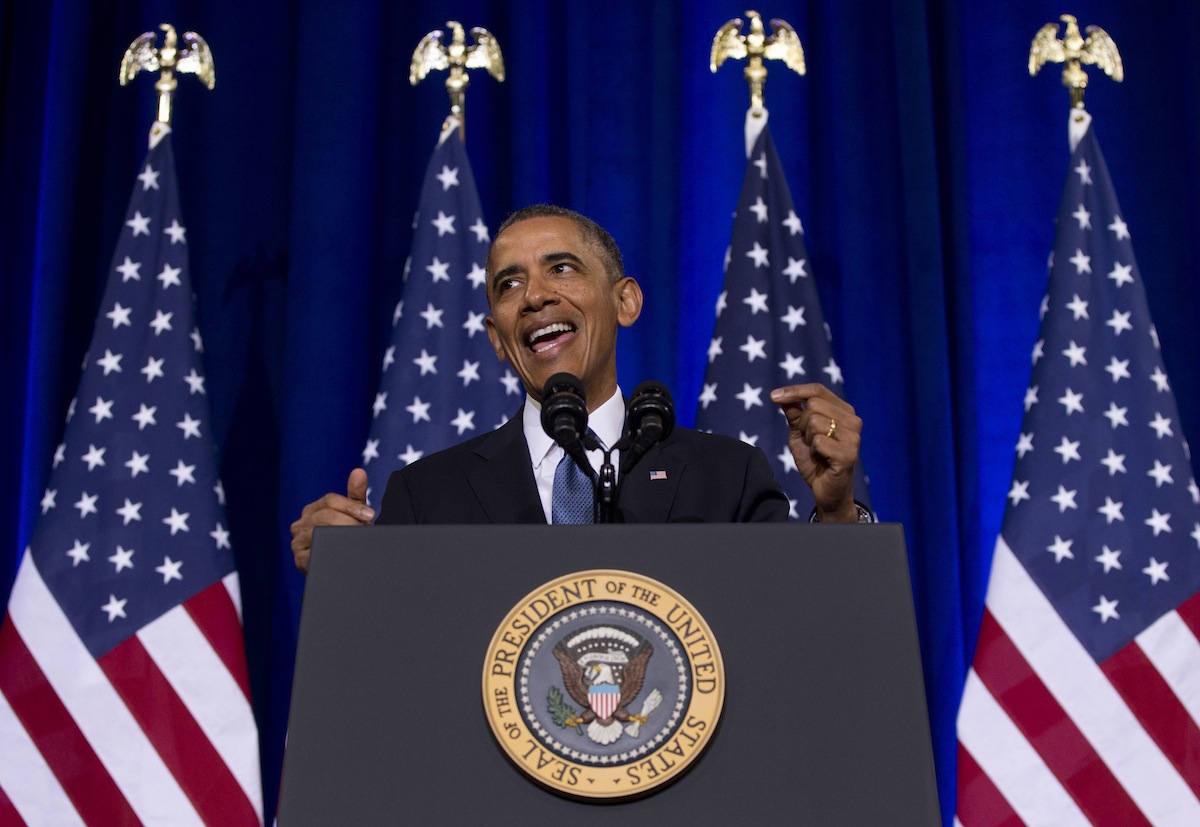Intelligence Expert: Obama’s NSA Reform Promises Are the First Step

Photo Via Associated Press
In an effort to restore the confidence of the American public and to calm fears that metadata collected by some of the administration’s top intelligence agencies is being used to snoop on people’s private emails and phone conversations, President Barack Obama vowed to put additional protections in place to ensure nobody’s civil rights are violated through the National Security Agency’s surveillance efforts.
But while his promise sounded reassuring and may subside angry feelings some people have about the intrusions, experts say the president’s plan to have more oversight of how data is collected, disseminated, and stored needs to go further.
“It’s a fair and reasonable step, but there needs to be a lot more discussions around it, so the American public can form an opinion [on the government’s collection methods],” said Kevin Ryan, director of the Defense and Intelligence Project at Harvard University’s Belfer Center for Science and International Affairs. “It’s the first in a series of in-depth looks at what is actually going on. I do think more changes need to be made. Americans needs to be more informed about how the government is using and storing this data.”
During a press conference Friday morning, Obama specifically addressed reports about the leak of information accusing the NSA of collecting piles of phone records and other correspondence between U.S. citizens from major phone companies and corporations. In his address to the nation, Obama outlined steps the administration is taking to try and strike a balance between protecting the public from the threat of terrorist activity, by sifting through data while also steering away from casting a “Big Brother”-like shadow over the general population’s daily activities.
“The combination of increased digital information and powerful supercomputers offers intelligence agencies the possibility of sifting through massive amounts of bulk data to identify patterns or pursue leads that may thwart impending threats,” Obama said. “It’s a powerful tool. But the government collection and storage of such bulk data also creates a potential for abuse.”
In his proposal, Obama said he would reform programs and procedures to provide greater transparency, implement safeguards that would strip the government from holding onto data, and require the NSA to seek permission from a secret court if they want access to the database under section 215 of the Patriot Act. ‘‘The reforms I’m proposing today should give the American people greater confidence that their rights are being protected, even as our intelligence and law enforcement agencies maintain the tools they need to keep us safe,’’ Obama said.
Ryan said these reforms are intended to improve transparency for the American public, and our foreign partners and allies, while still protecting the “tremendous resources” these collection efforts are for the country. “There will be people who will think they haven’t gone far enough and people who think they give away too much, but at this moment, what we are just beginning to understand is what these capabilities are and what they are about,” Ryan said.
As the president stated during the press conference, he doesn’t believe that workers at the NSA broke protocol when collecting data for surveillance purposes, or “abused authorities in order to listen to [people’s] private phone calls or read [people’s] emails.”
And he certainly doesn’t believe that agencies should be disbanded completely, because if another 9/11 or cyber attack were to happen, the NSA “will be asked by Congress and the media why they failed to connect the dots.”
Joseph Wippl, director of graduate studies at Boston University’s Department of International Relations, and a former CIA operations officer, agreed.
“It’s a political issue and the president is trying to find the middle way. If there is some kind of terrorist attack against Americans—and there almost certainly will be in the next years ahead—they don’t want to say ‘we reduced our capabilities to monitor these people, and didn’t know about it,’” he said.
Although the idea of storing bulk data about private citizens is unsettling, Wippl said Obama was right in saying the government isn’t combing through the conversations of the average person.
“The government does not look into our communications, because frankly the government doesn’t care about us. They won’t look into communications unless they have a suspicion that you are engaged in terrorism or some type of crime,” he said. “Megadata is something that’s on the shelf. No one cares about it. There’s a billion and a half pieces of data picked up every day. I mean, my God, who would look at any of it? Who cares?”
But Wippl said these new protocols are a starting point to help prevent any potential abuse of authority. “You now have a layering of more and more things to prevent abuse. How many layers do you need? That’s a political question, as much as anything,” he said. “It’s going to be a step-by-step reform.”


